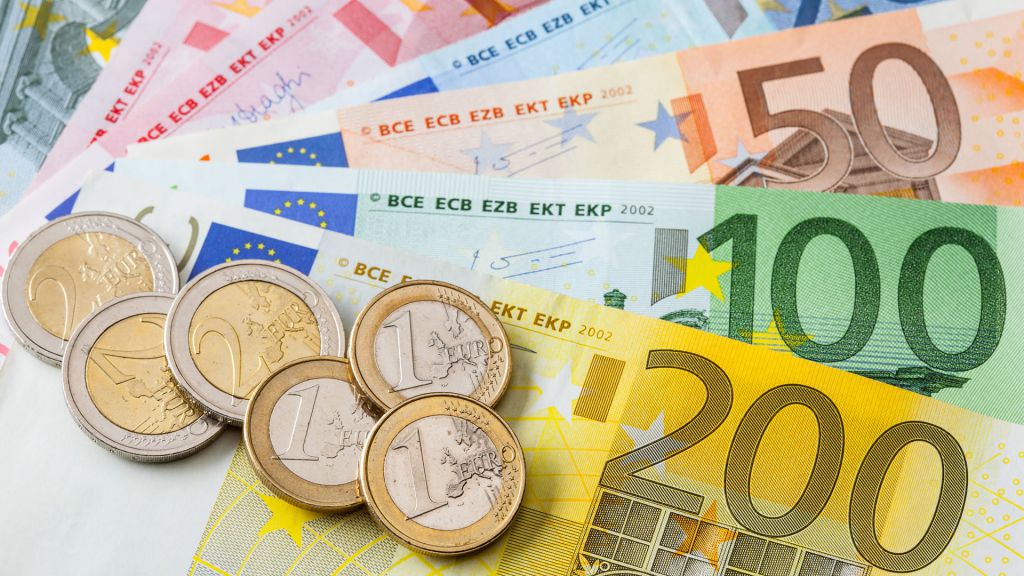
The euro remains the second most used currency in the world
The US dollar maintained its dominant role as a reserve asset in 2016, despite seeing its share fall to 64% from 65%, while the pound gained weight, rising from 4.1% to 4.4%.
The euro remains without discussion the second most important currency of the international monetary system, although at a considerable distance from the dollar
The euro remains the second most important currency of the international monetary system, although at a considerable distance from the dollar, which widened between 2016 and 2017, when the common European currency lost weight in the markets weighed down by political uncertainty, according to Analysis carried out by the European Central Bank (ECB).
The international use of the euro declined slightly between 2016 and 2017, although not uniformly, concludes the entity, underscoring the exception represented by the greater weight acquired by the European currency as a reserve asset, whose share rose to 19.7% in 2016 From the previous 19.4%.
After falling for six consecutive years, the share of the euro in official international reserves rebounded slightly in 2016, albeit from a low level, the central bank said, noting that the stabilization of the euro's role as a reserve asset offers "tentative evidence of That its role as a store of value has been resilient to the various shocks in the markets. "
For its part, the US dollar maintained its dominant role as a reserve asset, despite seeing its share fall to 64% from 65%, while the pound gained weight, going from 4.1% to 4.4 %, The yen maintained a presence of 4.2% and the yuan made its first appearance, with a share of 1.1% of the total.
The ECB also noted that the euro increased its presence in 2016 in the global payments segment, after three consecutive years of decline, according to data collected by Swift, reaching a weight of 31.3% from 29.3 % Of the previous year, while the US dollar retained the predominant role with 42%, one percentage point less than a year earlier.
However, other indicators used in the preparation of the report show a slight loss of importance of the euro in the markets, particularly in international loans, currency trading and the transfer of euro banknotes outside the euro area. Also, the volume of debt denominated in euros decreased in 2016 and is well below pre-financial crisis levels.
Between 2016 and 2017 the difficult environment affected the use of the euro and the currency continued to lose some place, although not in a uniform way, the ECB acknowledges when referring to the impact of political uncertainty related to electoral processes in the EU and the victory of the 'Brexit' in the referendum on the UK's permanence in the EU.
The institution considers that better and more deeply connected capital markets as a result of the progress towards the EU capital market, as well as the finalization of the banking union, can contribute to a greater fund and liquidity of the financial markets of the EU. Eurozone and, indirectly, boost the international role of the euro.
In this regard, and despite stressing that a more prominent role of the euro at the international level is not an objective of its policies in itself, it would signal the confidence of the rest of the world in the success of Economic and Monetary Union.
- Featured news
-
Consigue tu hipoteca ideal con ayuda experta y mejores condicionesAugust 11th 2025
-
 Incorporamos a Carlos Martín como nuevo Director de nuestra oficina de Barcelona en aFinanceSeptember 19th 2024
Incorporamos a Carlos Martín como nuevo Director de nuestra oficina de Barcelona en aFinanceSeptember 19th 2024 -
 Las finanzas bajo el foco con nuestro Director NacionalSeptember 12th 2024
Las finanzas bajo el foco con nuestro Director NacionalSeptember 12th 2024 -
 En aFinance participamos en el Evento ‘Comunicación Eficaz’ en Roca Barcelona GalleryMay 25th 2024
En aFinance participamos en el Evento ‘Comunicación Eficaz’ en Roca Barcelona GalleryMay 25th 2024 -
 En aFinance, nos complace anunciar la incorporación de Patricia Marqués como Coach EjecutivaMay 23rd 2024
En aFinance, nos complace anunciar la incorporación de Patricia Marqués como Coach EjecutivaMay 23rd 2024 -
 En aFinance hemos superado los 1.150 millones de euros en valor de transacciones durante 2023May 3rd 2024
En aFinance hemos superado los 1.150 millones de euros en valor de transacciones durante 2023May 3rd 2024






